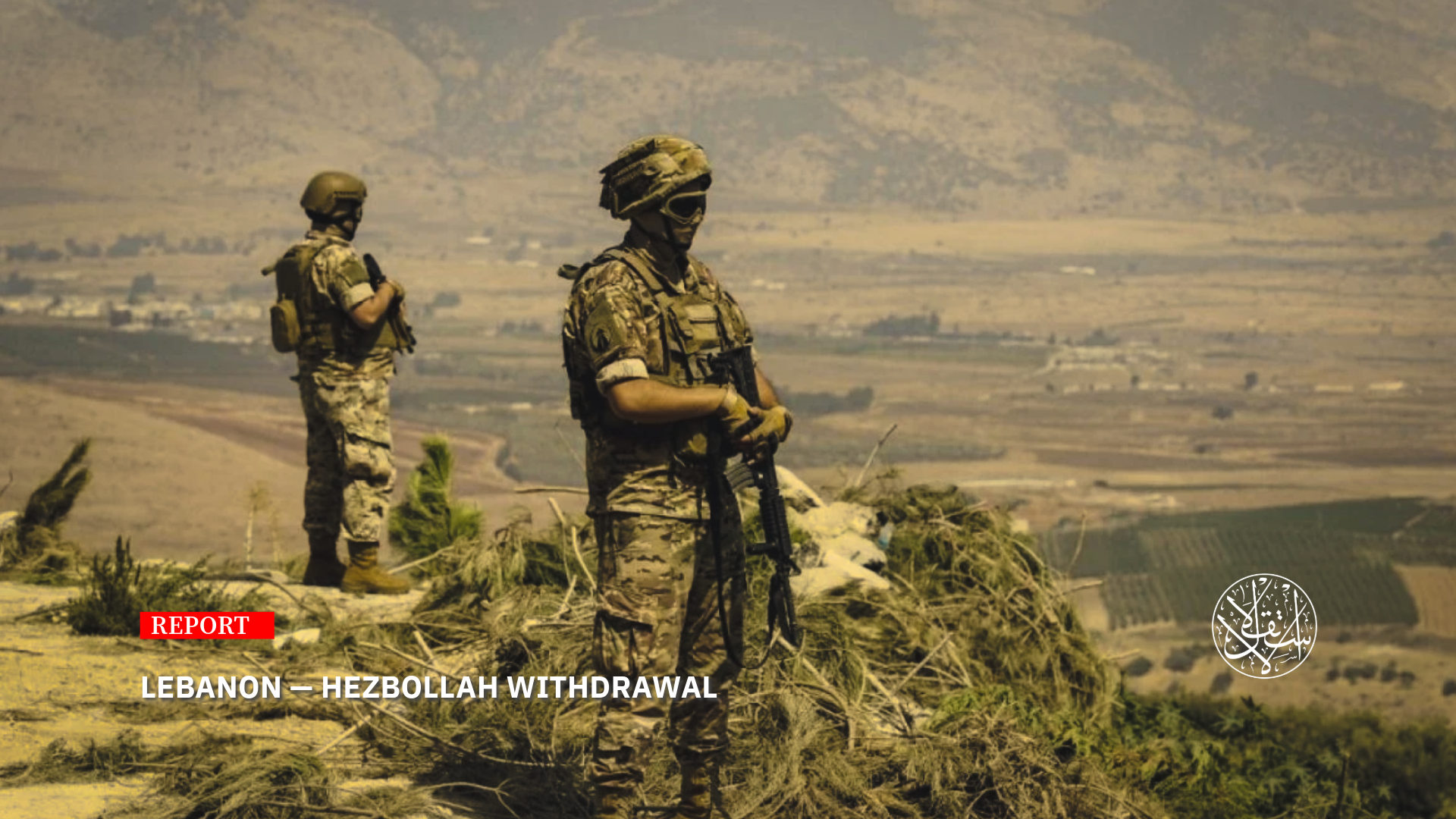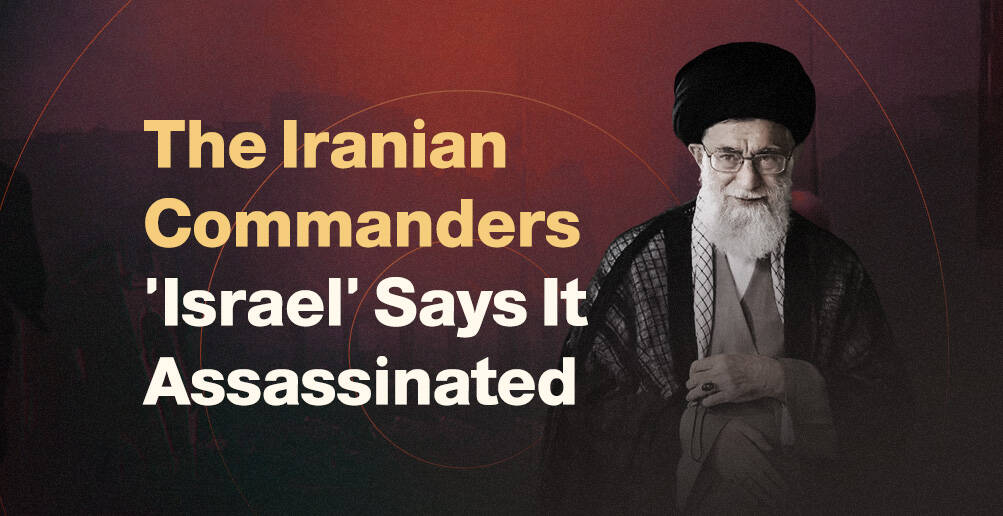Hezbollah Hands Over Positions to Army: Has Its Presence in Southern Lebanon Ended?

"Israel" links Lebanon withdrawal to Hezbollah's positions being handed to the Lebanese army.
Hezbollah is working to demonstrate cooperation with the Lebanese army regarding the handover of its military positions in southern Lebanon, in line with the recent ceasefire agreement and to preclude any Israeli pretexts for maintaining control over key strategic sites in the region.
A source close to Hezbollah told Agence France-Presse on April 12, 2025, that most of the party's military sites south of the Litani River are now under the control of the Lebanese army.

Military Replacement
The source, who requested anonymity, stated that Hezbollah had identified "265 military points" in southern Lebanon, of which approximately 190 have now been handed over.
According to the security source cited by the agency, the Lebanese army, in cooperation with the UNIFIL peacekeeping force, has dismantled most of Hezbollah's military positions in the south of the Litani River.
The security source noted that the Lebanese army is "in the final stages of securing full control over all Hezbollah positions" in the southern Litani region.
Hezbollah has also handed over the eastern Zawtar area along the Litani River, which is one of its largest storage and manufacturing camps.
On November 27, 2024, a ceasefire agreement between "Israel" and Hezbollah came into effect, following months of mutual military operations triggered by Hezbollah's support for Gaza after the Operation al-Aqsa Flood.
The ceasefire agreement stipulated Hezbollah's withdrawal to the northern bank of the Litani River, 30 kilometers from the border with occupied Palestine, the dismantling of its remaining infrastructure in the south, and the deployment of the Lebanese army in those areas.
The agreement also called for the implementation of UN Security Council Resolution 1701, which demanded that all weapons be held exclusively by the Lebanese state.
However, the ceasefire did not prevent "Israel" from carrying out occasional strikes targeting Hezbollah leaders in various cities, particularly in the southern suburbs of Beirut, nor did it halt Israel's obstruction of reconstruction efforts in Lebanon until Hezbollah relinquished its weapons.
Despite the ceasefire, "Israel" continues to launch airstrikes on what it claims are Hezbollah targets in the south, while maintaining its military presence on five strategic highpoints along the border.
Israeli Occupation Forces claim that their presence at these points is "temporary, pending Hezbollah's withdrawal to the north of the Litani River and the Lebanese army taking full responsibility for southern Lebanon."
This came alongside a warning from Lebanese President Joseph Aoun on April 12, 2025, who stated that any weapons outside the state's control "put Lebanon's interests at risk," amid the ongoing debate surrounding Hezbollah's arsenal.
In a speech from Baabda marking the 50th anniversary of the outbreak of the Lebanese Civil War, Aoun said, “As long as we are united in the belief that any weapon outside the state or its decision poses a danger to Lebanon's interests for various reasons, it is time for all of us to say: only the state, its army, and its official security forces can protect the country.”

A Diplomatic Opportunity
Thus, Hezbollah's withdrawal from some positions in southern Lebanon aims to provide the Lebanese state with a "diplomatic opportunity."
It also seeks to pressure "Israel" into fulfilling the conditions of the ceasefire agreement, which requires Hezbollah to withdraw north of the Litani River.
Furthermore, the move is intended to pave the way for "Israel's" departure from the five points it still occupies in southern Lebanon, linking its withdrawal to the complete deployment of the Lebanese army in Hezbollah's former positions there.
The sites in question are located in the regions of al-Labouna, Jabal Blat, and Jall ed-Deir, which overlook Israeli settlements, as well as the Hamamis hill, which is strategically important for its control over the Finger of Galilee or Galilee panhandle. The fifth location is Houla.
Lebanese political analyst Faysal Abdel Sater, in televised remarks, points out that "the failure of the Quintet Committee on Lebanon to condemn Hezbollah signifies that the group is committed to dismantling its military infrastructure in the south and handing it over to the Lebanese army."
The Quintet Committee on Lebanon includes representatives from the United States, France, Saudi Arabia, Egypt, and Qatar.
In this context, Janoubia reported on April 10, 2025, citing sources, that "Hezbollah faces a new reality unlike previous ones, and it is forced to undergo a rebirth. The Lebanese army, in cooperation with UNIFIL, is on the verge of completing the dismantling of Hezbollah's entire military infrastructure south of the Litani River."
The sources add that "While Hezbollah has complied with handing over smaller centers and facilities, it previously denied the transfer of a large facility in the Jilo Valley, before ultimately conceding after Israeli drone footage documented it, followed by the army's entry to dismantle it."
They reveal that "Certain facilities along the Litani River, particularly near Yahmar al-Shaqif, nearly escalated tensions between the Lebanese army and Hezbollah in early April 2025."
This came "after the army insisted on entering the area, while Hezbollah objected, arguing that the tunnel is located north of the Litani, not south, and that addressing these sites is contingent upon the bilateral dialogue mentioned by the president."
The sources also point out that "The Lebanese army is determined to carry out its mission north of the Litani after fully securing the south, the withdrawal of Israel from the points it occupies, and halting its violations. However, Israel refuses this and insists on remaining in Lebanon until Hezbollah's weapons are removed and the military institution asserts control."
"The Lebanese army has not only moved closer to asserting its authority south of the Litani, but it has also carried out several raids in the southern suburbs, entering areas previously off-limits to search for Hezbollah weapon caches."
"Despite coordination between the Lebanese army and Hezbollah’s Liaison and Coordination Unit, the army’s presence at the site of an Israeli airstrike or any incident is accompanied by a strict prohibition on any party member carrying weapons in the area, with violators facing arrest," the sources added.

Avoiding Sanctions
Lebanon now faces the threat of U.S. sanctions if Hezbollah maintains any military presence in the country, signaling the Lebanese government's commitment to relinquishing the group’s positions in favor of the army.
U.S. envoy to Lebanon, Morgan Ortagus, informed the Lebanese government of the U.S. Congress's approval on March 5, 2025, of a bill encompassing a range of sanctions, pending the signature of the White House.
As a result, the U.S. envoy delivered a set of demands to Beirut, urging Lebanese leaders to take action or face the looming threat of sanctions, according to the local Nidaa al-Watan website on April 14, 2025.
Ortagus emphasized to officials that the law is stringent, prohibiting any financial aid to the Lebanese Armed Forces unless the U.S. Secretary of State informs Congress that Beirut's government and parliament no longer recognize the legitimacy of Hezbollah and its allies.
The law also prohibits ministers or any other government officials from claiming an alliance with Hezbollah, its bloc, or “the Amal Movement.”
Under the law, Hezbollah is barred from maintaining any military presence in Lebanon, in accordance with the Lebanese Armed Forces and Internal Security Forces’ measures to implement UN Security Council Resolution 1559 (adopted in 2004).
The resolution calls for the disbandment of Lebanese and non-Lebanese militias, the disarmament of these groups, the expulsion of Hezbollah's military forces from their known strongholds, and the reinforcement of legitimate state forces to prevent the military resurgence of the group.
The law stipulates that the Lebanese Armed Forces are prohibited from coordinating, cooperating, or providing support to Hezbollah, its affiliated companies, any group designated by the United States as a foreign terrorist organization, or the Iranian regime, and vice versa.
It also mandates the destruction or removal of any weapons previously received from Iran, whether in the form of arms, ammunition, or military equipment, as outlined in the law.
This explains the Lebanese Army’s ongoing operations to detonate munitions and weapons it controls in southern Litani or other locations, instead of storing them in its depots.
This is "because the American decision is clear on this matter, and the Lebanese Army will not arm itself with remnants of Iranian weapons, with Washington promising to re-equip it once the dismantling of Hezbollah’s military infrastructure is complete."
Lebanese President Joseph Aoun reaffirmed his commitment to limiting weapons to the state, while stressing the "importance of resorting to dialogue" to achieve this goal. He added, "We will soon begin working on formulating a national security strategy."
Observers assert that Hezbollah is keen not to bypass the Lebanese Army in matters of deployment in the south, in line with the ceasefire agreement, especially at this stage when the group has been weakened following its recent confrontation with "Israel."
However, Hezbollah is leaving the discussion of its weapons in other parts of Lebanon within the framework of a "National Defense Strategy," linked to Israel's withdrawal from the five positions in southern Lebanon. The group refuses to hand over its arsenal north of the Litani River, raising questions about the future use of this weaponry, especially given its past record of internal use, notably when it stormed the streets of Beirut on May 7, 2008, and maintained its political dominance through armed force until 2024.











